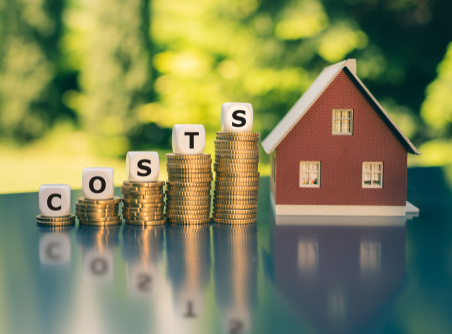Spain is an attractive destination for tourist visits as well as settling down in a sunny, vibrant, and friendly place. For those that cannot pick between the two, buying a secondary or a holiday home in the country that they can visit while vacationing or in their free time could be an excellent alternative. After all, Spain has something to offer to even the most demanding people. The country is filled with sandy beaches, cultural and artistic masterpieces, a welcoming atmosphere, amazing cuisine, and a rich and eventful nightlife.
However, the Spanish property market has its own quirks, and navigating the bureaucracy could be a hassle. Even figuring out all of the costs associated with purchasing the chosen property comes with its own difficulties. Consulting with a lawyer well versed in Spain’s local laws and a professional tax advisor could help potential home-buyers avoid many regulatory pitfalls and make the whole process much more manageable. Using a cost of buying a house in Spain calculator to get a rough idea of the funding that might be needed for the particular property is also highly recommended.
Spain’s Property Market in 2022
Spain’s property market followed the general trend observed in other countries impacted by the COIVD-19 pandemic. The consequences of the pandemic caused the entire sector to freeze seemingly overnight due to the enacted lockdowns and other safety and health regulations. The construction of new properties was also paused. Since then, however, the property market is showing a robust recovery caused by a surge of backlogged buyers coupled with a lack of available projects within that timeframe. So robust, in fact, that in January 2022, the National Institute of Statistics (INE) reported over 52 000 property transactions taking place, the highest activity recorded for the first month of the year since 2008.
The upwards trend is expected to continue as the demand for Spanish homes heavily outweighs the supply of available properties. Projections show that approximately 750 000 transactions are expected to occur throughout 2022, with the expected price growth being set at around 10%.
Calculating The Price of Your Spain Property
The first important distinction that must be made is whether the chosen property is a new one or if it has already been transferred before. In Spain, the taxes that must be paid in these two cases differ drastically. For example, new homes bought for the first time from a seller, such as a banker, promoter, or usual trader, are taxed with a 10% VAT (IVA). On top of that, buyers will also need to pay a Stamp Duty tax (AJD), with its exact rate varying between the different autonomous communities. On the other hand, purchasing a property that has already been transferred in the past does not include a VAT tax, while a different Stamp Duty tax (ITP) is applied. ITP is also determined by each autonomous community separately.
Additional Costs
To figure out the real costs of the property, buyers must also account for several additional costs, most notably, the Spanish Notary fees. They are almost exclusively covered by the buyers, and the exact amount is based on several factors – the complexity of the cases, the number of pages of the deed, the various documents attached to it, and the total value of the property. Although not mandatory, it is also strongly recommended for the new owners to register their property with the Spanish Land Registry Office. Inscription in the Registry provides the main legal protection for the holders of the property. These services are also determined on a case-by-case basis. As we said earlier, the help of a lawyer and a tax advisor could prove to be well worth it, so their legal fees should also be included in the costs.
Taxes For Owning a House in Spain
When talking about the real costs of purchasing a property in Spain, the recurring taxes that emerge after finalizing the deal should not be neglected. First, there is the annual local Property Tax (IBI) that is calculated based on the cadastral value of the property multiplied by a percentage set by each local council. Non-residents owning a property in Spain will also have to cover the Personal Income Tax, which differs based on whether the specific property is being periodically rented out or not. In addition, an annual wealth tax based on the owned assets in the country must be factored in. Keep in mind that there is a tax-free allowance of €700,000 as well as certain recognized deductibles that may be applied to the wealth tax.




